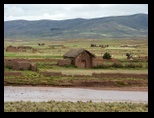
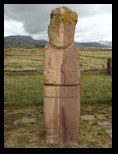
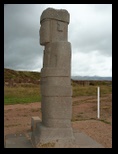
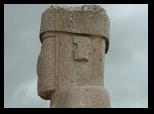
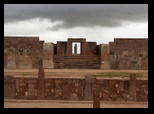
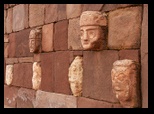
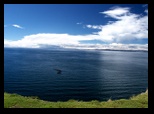
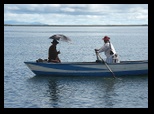
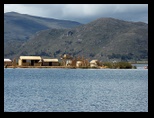
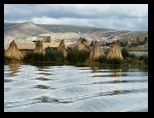
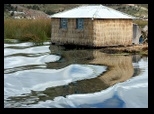
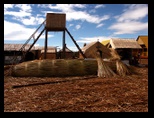
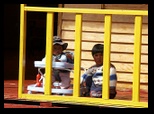
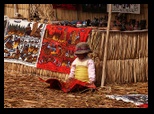
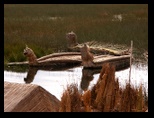
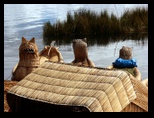
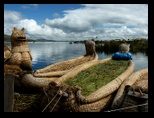
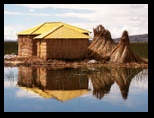
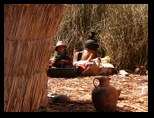
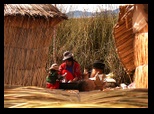
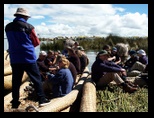
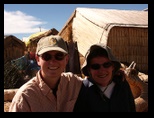

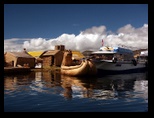
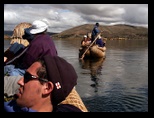
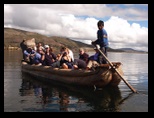
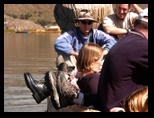
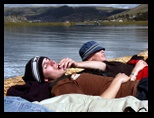
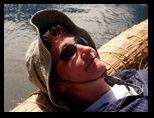
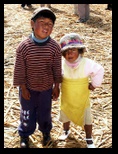
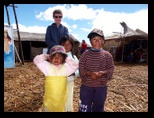
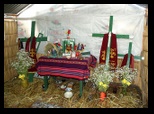
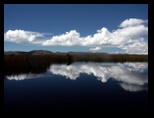
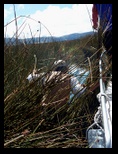
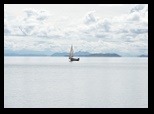
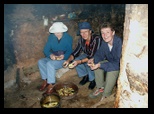
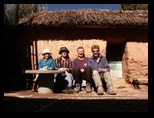
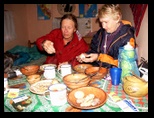
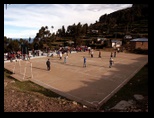

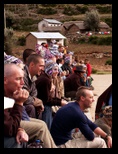
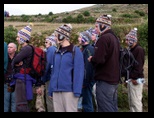
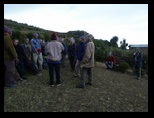
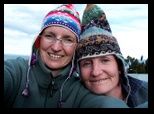
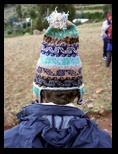
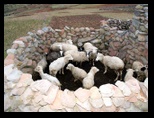
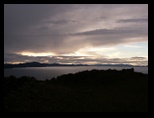
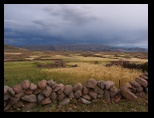
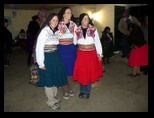
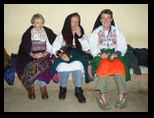
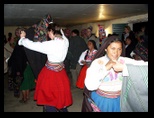
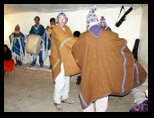
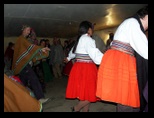
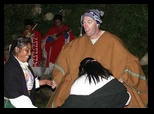
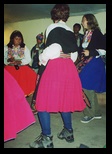
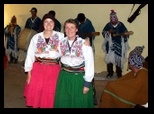
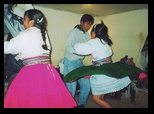
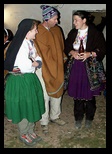
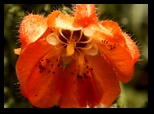
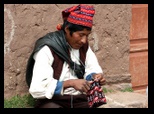
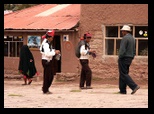
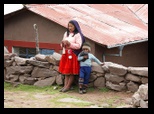
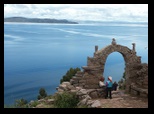
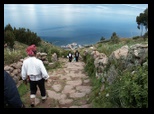
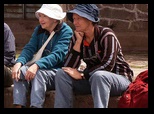
Click on a photo to enlarge it.
Friday, 19.04.2002: La Paz to Puno
We left La Paz at around 8am. It was a dull, cloudy and cold day. Our first stop was at the ancient ruins of Tiwanaku - a pre-incan culture more than 2000 years old. We went on a guided tour and had a closer look at the remains of the temple, the famous sun gate and the stone statues.
Then we crossed the border into Peru. It took us 1 1/2 hours to find the right place in the middle of a shitty border town with mud roads having to reverse all the time and turn around. It was hard work to drive the big truck through the narrow market street where the border post was hidden between vegetable and fruit stands.
We drove for another hour and found a great spot for lunch overlooking the fabulous Lake Titicaca. It was hot and sunny so we all did a little sunbathing on 3800m.
We got into Puno at 4-30pm and stayed at the lovely Hotel Italia. Puno is a nice relaxing little town with lots of cafés and excellent restaurants. After the briefing about the upcoming island trip we all enjoyed the cheap and tasty food in town.
Saturday, 20.04.2002: Puno - Amantani Island
At 8am a minibus drove us down to the quay. Before we boarded the boat for our two-day island trip we bought gifts for the families we are going to stay with on Amantani Island. The Amantani people appreciate rice, pasta, bananas, candles or paper and pens for the kids - all goods the island people can´t produce or buy on their island.
We sailed to the reed island built by the Uros. Approximately 1,200 Uros live on the 35 floating reed islands. The reed grows in the massive lake and the Uros cut them three times a year to put a fresh layer on top of the old ones. Unfortunately we were dropped off on a little island with many stalls selling carpets, tablecloths and pottery to the tourists. But the short ride on a reed boat with a poler who took us across to another island was good fun. There we got a glimpse of the ´real´ Uro life - a woman doing the laundry, school kids waiting for the next lesson and the church.
Visiting the Uros on their reed islands
We played bingo on the three-hour boat trip to Amantani Island. Helen also practised some quechua language because Spanish is not common on the islands. We will never forget how to say "my name is..." which is ´nokaq suti´ and how to remembered it ... Sootie, as in Sootie and Sweep, is not allowed to go for a sh-- Hence nokaq suti! Get it??
Helen teaching Quechua
We got to Amantani at around 1pm. It was boiling hot! We were split up in little groups of 2 to 4 people and a member of each local family picked us up at the boat and took us home. It was hard work to follow their quick footsteps up the steep hill. We were puffing and sweating in the high altitude of nearly 4000m. The room we shared with Melva and Elva was used only for tourists and had beds! The locals don't have them. There is only electricity in the common meeting rooms on the island so we had candles.
We helped out peeling potatoes in the small kitchen and practised our Quechua with the whole family. The food was basic but hearty and very tasty (soups plus rice, potatoes and okra - looks like a pale carrot and is slightly sweet). In the afternoon the locals set up a football tournament. Local teams against truck teams (Kinda, Famoo and Bukima). Guess who won in the altitude?!
Basic meal and football game
Afterwards we all took a guided tour to the ancient ruins on top of the island. We had a great sunset on one side of the island and a big thunderstorm on the other side.
Walk on Amantani Island
That evening we had to get dressed up in the local dress - 2 thick, bulky skirts, a crocheted white top and a brightly coloured cumber band style belt that would have been tied so tight around our wastes had we not deliberately put our thumbs inside to make sure we could still breathe!! We'd already seen Elva being dressed and she nearly fainted! Then we had to walk down in our costumes, elegantly finished off by our walking boots! and went dancing in the hall. The locals were killing themselves laughing at us and we got the sneaking feeling that some of the dances weren´t traditional at all!! It was a great night and the locals certainly enjoyed it too!
Great evening with lots of dances
Sunday, 21.04.2002: Amantani/Taquile Island - Puno
There was a loud knock on the door at 6am(!). We were given a bowl with hot water outside the door to wash our faces. Breakfast came at 7am, peppermint tea with fried egg sandwiches. It was pissing down with rain when we walk down the muddy path to the boat.
At 9am we got to Taquile Island and walked about 1 hour up the slope to the main square of the village. By now it was sunny and hot. Taquile is the home of skilled weavers (only men!) and a spot where travellers can buy well made woollen and alpaca goods as well as colourful garments whose patterns and designs bear hidden messages about the wearer's social standing or marital status.
We had fish and chips (yummy) for lunch in a small restaurant and then went down 516 steps to get back on the boat to Puno.
Most of the truck tried Guinea Pig that evening which is a Peruvian delicacy but is served splayed out on a skewer with its head still on! Apparently it tastes like chicken but there was hardly any meet on the bones so people stayed hungry - some of them went for a burger afterwards!